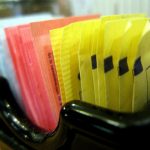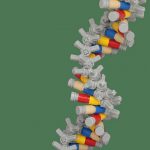
The tendency to act impulsively when feeling depressed or distressed is often called a “negative urgency.” Depressed individuals with a low degree of negative urgency tend to withdraw and become inactive when symptoms are intense. Depressed individuals with a high degree of negative urgency tend to act impulsively instead. They might drink heavily or eat …
Read More

Although they add no carbohydrate or calories to our food, research indicates that artificial sweeteners may contribute to weight gain. These findings are refuted by the American Beverage Association, and the updated U.S. dietary guidelines state that artificial sweeteners, if used in moderation, are okay. Yet, the dietary guidelines also state that artificial sweeteners should …
Read More

Early treatment of anorexia increases the likelihood of recovery success, and the reason for this goes deep as our DNA. The expression of DNA – the way it influences our body and behavior – can change because of environmental and lifestyle influences, such as the food restriction associated with anorexia. Research has shown that women …
Read More

The pain of rejection can trigger or intensify symptoms of eating disorders, depression, or anxiety. Research reveals that rejection is extremely upsetting not because we are over emotional, but because of our brain’s wiring. When study participants were hooked up to MRI machines and asked to dwell on a recent experience of rejection, their thoughts …
Read More

Anyone trying to establish healthier eating habits can give their self a boost by remembering three words: convenient, attractive, and normal. A study, done by Cornell researchers, analyzed the results of 112 other studies investigating healthy eating behaviors. The Cornell data revealed that humans of any age tend to select more nutritious foods when they …
Read More
Click on a state below to find eating disorder treatment options that could be right for you.





 Eating Disorder Self Test. Take the EAT-26 self test to see if you might have eating disorder symptoms that might require professional evaluation. All answers are confidential.
Eating Disorder Self Test. Take the EAT-26 self test to see if you might have eating disorder symptoms that might require professional evaluation. All answers are confidential.